Search Results
Search
Filter results
Advanced Filters
Your search returned 131 Solutions
-
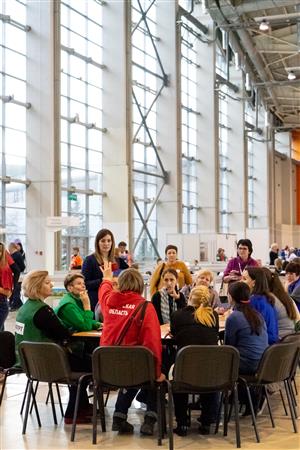
Solving social issues to increase job opportunities
In 2016, IKEA in Russia launched a joint project with the Abilympics movement to improve employment opportunities for people with disabilities. By 2020 the employment of people with disabilities in IKEA Russia has increased by 55 per cent, and new business partners have joined the Abilympics.
Ingka Group (IKEA), Abilympics Project, Russia -
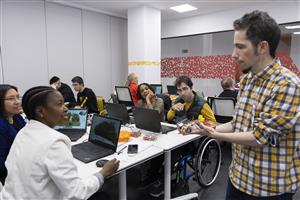
A programme to improve employability of people with disabilities in the digital sector
Fundación ONCE's Por Talento Digital: The programme enhances employability in digital and technological fields. From 2019 to 2023, trained nearly 21,000 persons with disabilties, with 887 courses to choose from.
Por Talento Digital, Spain -
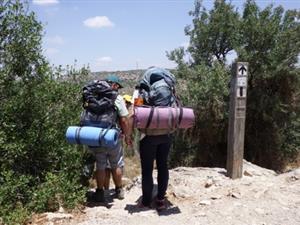
Two-year-transition period for young people with autism
Avnei Derech Mechina (“Milestones for Life”) offers a setting in which young people with autism can learn important aspects of life including employment, social activity, studies, home/family and leisure time. Most vocation and volunteer experience are temporary, but contribute greatly to future careers.
Avnei Derech Mechina La'Haim, preparatory college, Israel -
Livelihoods resource centres
As "one-stop-shops" Livelihoods Resource Centres (LRCs) provide training, career guidance and links between employees and employers. LRCs are delivered through local partner organisations and are unique in providing the full range of support that disabled people need when looking for jobs or becoming self-employed.
Leonard Cheshire Disability, Livelihoods resource centres, United Kingdom -
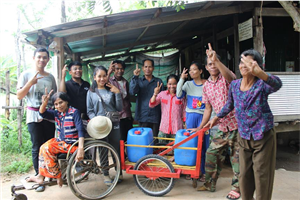
Accessible agriculture technology creating inclusive jobs in rural areas
Initiated by Light for the World, an international NGO, the "Accessible Agriculture" project is assisting farmers with disabilities and older persons to participate in farming through the development of personalized assistive technology, adapting processes such as water transportation and mushroom growing.
Light for the World Cambodia, Accessible Agriculture – The Agri-Lab Experience, Cambodia -
Being employed by a university for the duration of PhD study
Promi ("Promotion inclusive") enables and promotes postgraduate education for students with disabilities. Initiated in 2012, 45 45 graduates have been placed in PhD programmes at their university by 2016 and provided with employment for the duration of their studies at one of the 21 partner universitites of Promi.
University of Koeln, project “Promi”, Germany -
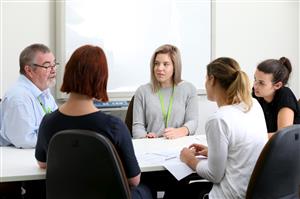
Business disability network connecting students with disabilities to paid internships
The programme matches students with employers based on location, degree, career goals, and skills. Companies commit to a minimum of 152 hours of paid work. Launched in 2005, by 2020 the Stepping Into programme is available across seven states and has facilitated 1,478 paid internships.
AND - Australian Network on Disability, Stepping Into Internship Program, Australia -
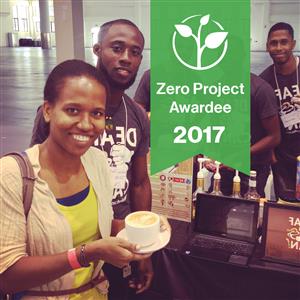
Training professional baristas in the Caribbean
Deaf Can! Coffee is a social enterprise founded in 2015 that engages deaf young people and equips them with the knowledge and confidence to operate a sustainable coffee venture. Once the candidates complete training, they are employed in the café, but also work upon request for mobile coffee stations.
Deaf Can! Coffee, Jamaica -
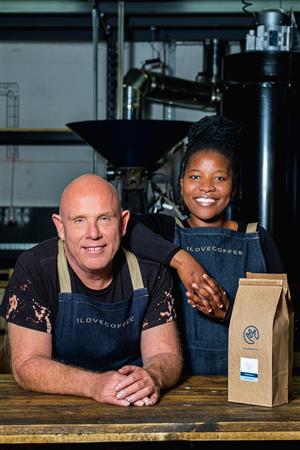
Expanding a chain of coffee shops run by Deaf young people
I Love Coffee operates a chain of coffee shops and coffee roasters and is staffed by deaf youngsters. Employees receive training and support. I Love Coffee currently has ten locations in Cape Town and Johannesburg and employs 26 people, 80 per cent of whom are deaf, and has trained a total of 100 people.
I Love Coffee, I Love Coffee, South Africa -
Support in transition to adult life
The School-to-Community Transition Initiative aims to improve the quality of transition planning and transition services for people with intellectual and developmental disabilities. This goal is achieved by identifying successful programmes that can be replicated nationwide within The Arc’s network of local and state chapters.
The Arc of the United States, Support in transition to adult life, United States of America